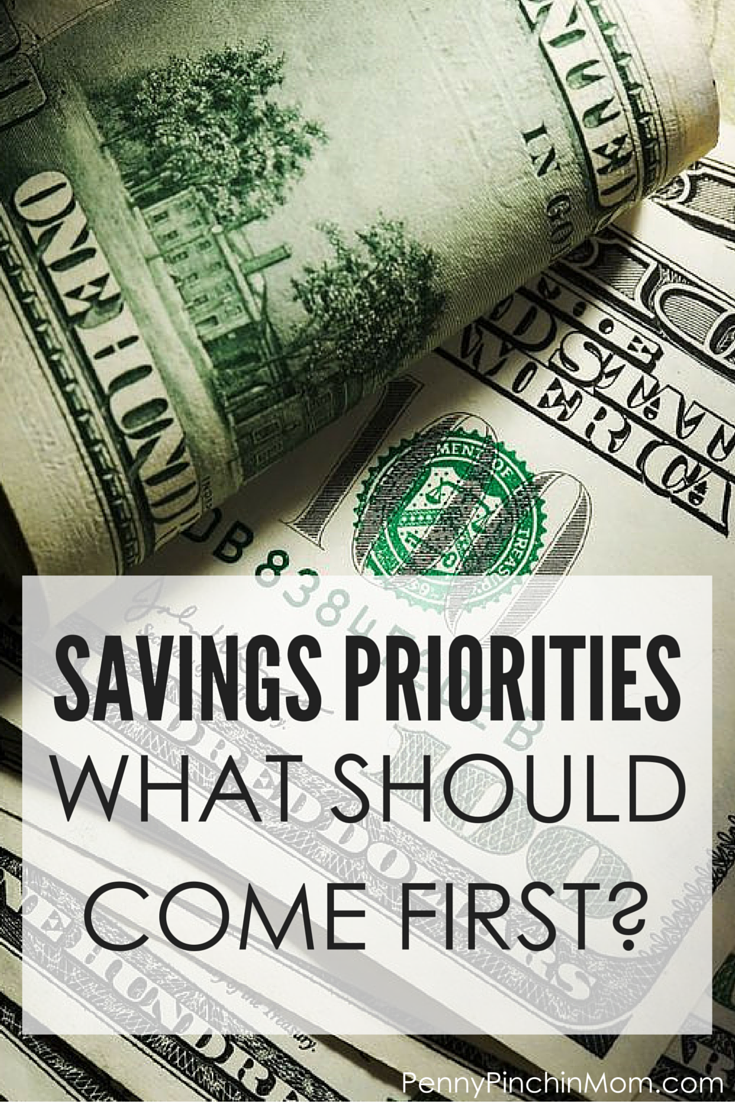When it comes to saving money, it can be hard to know where to start. One expert will tell you to start with your house while another says your focus should be on retirement. It is easy to end up confused and know what where to prioritize your savings.

So, where do you begin? Is one type of savings more important than the other? What if you are not saving the same way as your neighbor does?
There are a lot of questions when it comes to building your savings. If you can answer yes, then you’ve met these goals. If not consider these options when determining where to focus your savings.
WHAT TO SAVE MONEY FOR FIRST
Do I have a safety net?
When it comes to maintaining financial stability, few things help as much as a well-stocked emergency fund. Whenever you’re faced with life’s unexpected expenses, an emergency fund can help you cover the costs. This keeps you from resorting to a credit card and putting yourself into unnecessary debt.
Also see: Which debts should you pay off first?
Ideally, your fund should be able to cover anywhere between 3 to 6 months worth of expenses. Getting your emergency fund out of the way will allow you to tackle your other savings goals from a place of security.
Am I on track for retirement?
Retirement may seem like a long way off, but it’s important to start saving as soon as possible. This is so that you can receive the full benefits of compound interest or an employer match. A general rule of thumb is to save 15% of your income towards retirement savings. However, this may vary depending upon your particular financial situation.
If a 401(k) option is unavailable to you, you may want to look into an IRA, which can help minimize the tax burden on your savings. Regardless of how you decide to go about it, the earlier you start to save for retirement, the better.
What are my long-term savings goals?
What major expenses do you have coming down the road? Do you eventually want to buy a house? Have kids that need to go to college? Long-term savings goals tend to be geared towards major purchases or momentous life occasions, like buying a home or getting married.
While arguably not as pertinent as an emergency or retirement fund, these goals do require a lot of time and planning. See how much money you have left to contribute to these endeavors, and then you can divide your money between them in whatever way you see fit.
Do you have a “just for me” fund?
Vacations, major electronics, and other big non-essential purchases can all be covered by a “just for me” fund. These are items or experiences that may cost a hefty sum of money but aren’t really conducive to your overall financial wellbeing or major life goals.
These are typically considered to be lowest in priority since they’re more-or-less things we want as opposed to things we need. But, as long as you have your other major savings goals under control you should be able to contribute to your “just for me” fund without concern.
While it might be tempting to focus on the more fun and easily attainable goals in your savings plan, it’s very important to watch out for your future self. As we grow older, opportunities to save money start to dry up, making it more difficult to achieve our goals. But providing you focus your savings efforts in the correct ways today, you should be set up for a positive financial future.
More from Credit.com
- Chase Slate: A Great Bet If You Need Breathing Room From Your Debt
- What Is the Average Credit Score?
- Removing Collection Accounts from Your Credit Reports
This article originally appeared on Credit.com.
